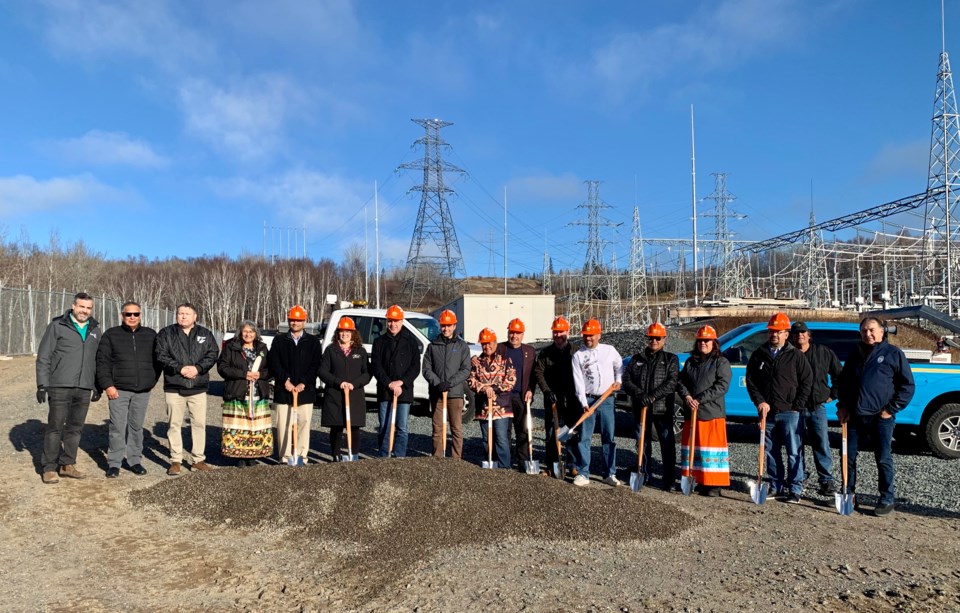SHUNIAH — Construction on the 365-kilometre long Waasigan Transmission Line will start before the end of this year with the project set to be completed in 2027.
A ceremonial groundbreaking took place Friday morning at Hydro One’s Lakehead Transmission Station in Shuniah with company president and chief executive officer David Lebeter, stating once completed, the transmission line will be able to produce 350 megawatts of electricity, which is enough to power Thunder Bay twice.
“What it does is strengthen the backbone of the bulk electricity system that runs from this point west throughout the province,” he said. “If you want to build new manufacturing, open up mines or forestry plans or even new communities, you need to have enough capacity on the transmission system.”
The current transmission system is getting full, said Lebeter, and the Waasigan line, which will run from the Lakehead station to Atikokan and then to Dryden, will allow for more economic activity in the region.
The project will cost $1.2 billion and the first phase of the project, the line from Shuniah to Atikokan, is expected to be completed by the end of 2025.
Construction is projected to create up to 400 jobs.
Mayor of Atikokan, Rob Ferguson, said the town has been working with this project for six to eight years.
“It’s beautiful to see it come to fruition,” he said, adding the transmission is line is important to Atikokan as the community is in the centre of it.
“We’re in the hub,” said Ferguson. “We’re going to see a lot of economic development. We’ve already seen economic development from it.”
The Waasigan project has caught the attention of the energy industry. Ferguson said the line will allow the community to export energy and that has brought developers to Atikokan.
The project is a partnership between Hydro One and nine First Nation partners.
Addressing the crowd on Friday, Fort William First Nation Chief Michele Solomon thanked Hydro One for taking the step toward true economic reconciliation.
“There are a lot of companies and industry out there that speak to economic reconciliation but they haven’t yet put action to those plans and to those words,” said Solomon. “I want to acknowledge (Hydro One’s) work that (they’re) doing to ensure there is true partnership, true reconciliation so there can be true economic benefits to our First Nations in this project.”
